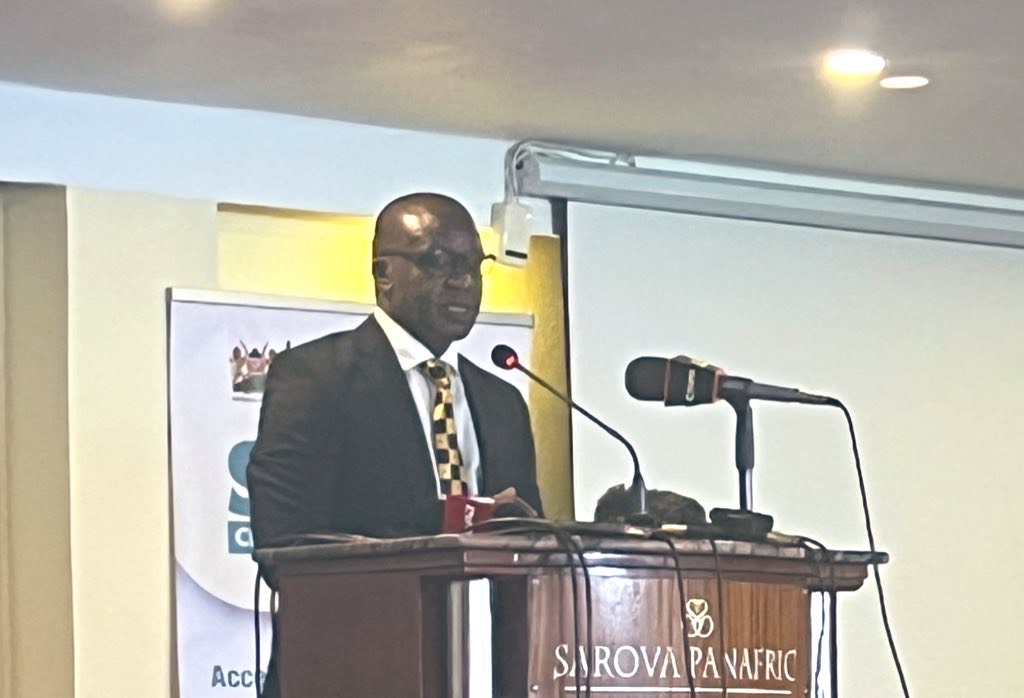𝐇𝐞𝐚𝐥𝐭𝐡 𝐌𝐢𝐧𝐢𝐬𝐭𝐫𝐲 𝐂𝐚𝐥𝐥𝐬 𝐟𝐨𝐫 𝐔𝐫𝐠𝐞𝐧𝐭 𝐀𝐜𝐭𝐢𝐨𝐧 𝐨𝐧 𝐂𝐞𝐫𝐯𝐢𝐜𝐚𝐥 𝐂𝐚𝐧𝐜𝐞𝐫 𝐏𝐫𝐞𝐯𝐞𝐧𝐭𝐢𝐨𝐧
𝐍𝐚𝐢𝐫𝐨𝐛𝐢, 𝐊𝐄𝐍𝐘𝐀 - 𝟐𝟒𝐭𝐡 𝐉𝐚𝐧𝐮𝐚𝐫𝐲 𝟐𝟎𝟐𝟓 Cabinet Secretary for Health, Dr. Deborah M. Barasa, is urging swift and focused action to address the rising burden of cervical cancer, which remains a leading cause of cancer-related deaths among women in the country.
Speaking at a cervical cancer awareness media briefing in a speech read by Dr Edward Serem on , Dr. Barasa stressed the need for a shift in the healthcare model, from a curative approach to one that prioritizes prevention. This shift supports the country’s Universal Health Coverage (UHC) goals, focusing on expanding access to Human Papillomavirus (HPV) vaccination, routine screenings, and timely treatment.
She noted that the government is working to integrate cervical cancer prevention into primary healthcare services nationwide. “The fight against cervical cancer is not just about statistics; it’s about saving lives,” Dr. Barasa remarked. “We must take bold steps to ensure every woman and girl has access to the preventive services that will protect them from this deadly disease.”
The latest GLOBOCAN 2022 statistics reveal that cervical cancer leads to 5,845 new cases and 3,591 deaths each year in the country, highlighting the urgent need for improved preventive care. Dr. Barasa also emphasized the essential role of the media in raising awareness. She encouraged journalists to use their platforms to educate the public on the benefits of HPV vaccination and the importance of regular cervical cancer screenings.
Additionally, she urged the media to dispel myths surrounding the HPV vaccine and encourage women to seek early detection and treatment. Focusing on prevention, Dr. Barasa underscored the importance of HPV vaccination, particularly for girls aged 10 to 14, as a proven strategy to reduce the future burden of cervical cancer.
She also acknowledged the contributions of the STOP Cervical Cancer coalition and praised cancer survivors for their advocacy for early screening and treatment. Dr. Barasa reiterated that the elimination of cervical cancer is achievable and called for a united effort from the government, healthcare providers, media, and the public to turn awareness into tangible actions that can save lives.


